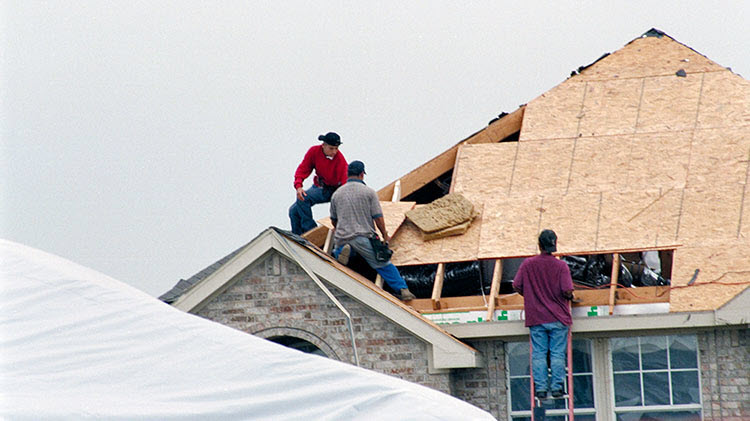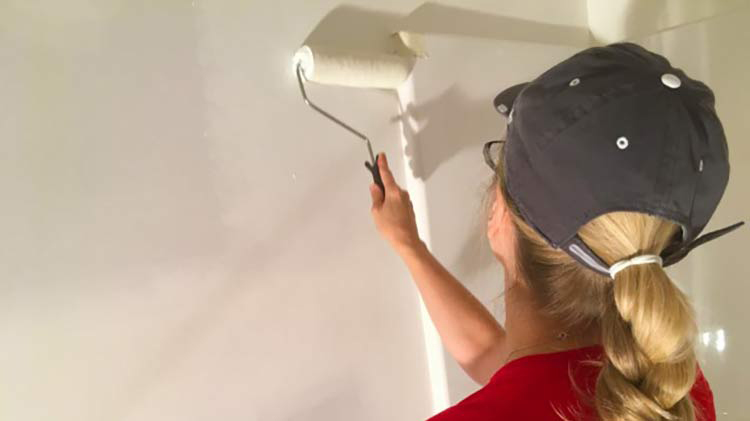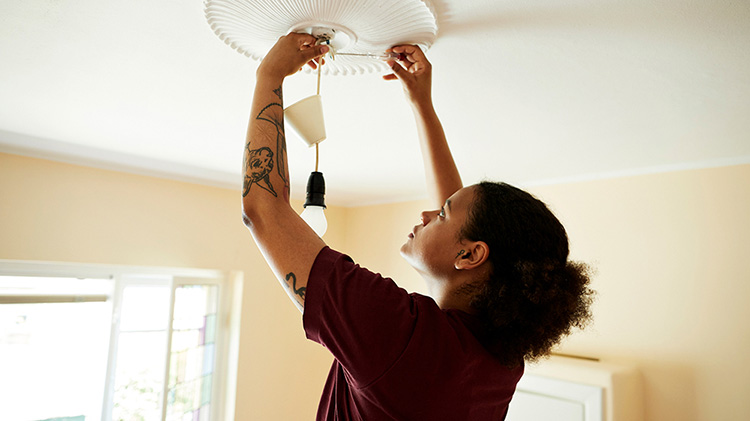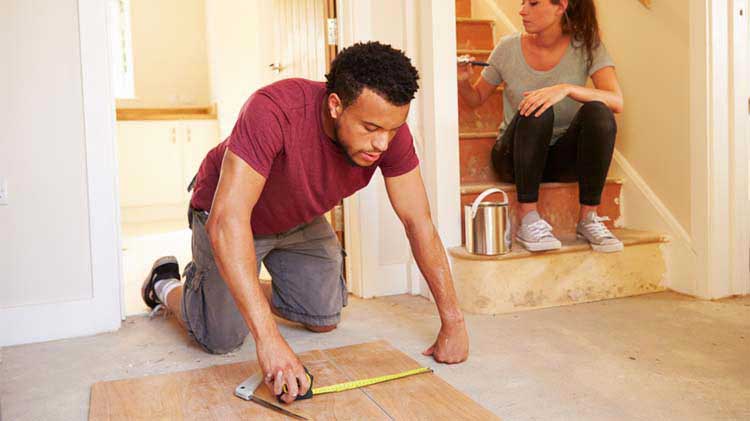Help protect yourself from contractor scams
If your area got hit hard with a catastrophe or weather event, shady contractors may arrive offering repairs. Learn tips that might help you spot them.
Clouds aren't the only things that roll in with tornadoes, hurricanes, wildfires or other types of severe weather. Also on that horizon might be dishonest contractors trying to scam you. Home repair scams may arrive in the aftermath of storms as shady contractors cash in by delivering substandard or defective workmanship. Help protect yourself, your money and your home from repair rip-offs by learning to spot the red flags.
What is a contractor scam?
Contractor firms or individuals might offer services that intentionally mislead a homeowner, like completing substandard repairs and overcharging for the service.
Trust your gut. If you don't get a good feeling about the contractor, don't use them. Be watchful of the following tactics:
#1 Unsolicited services — Beware of the pushy door-to-door sales tactics
A contractor stops by and gives you an unsolicited estimate for projects like driveway sealing, chimney rebuilds and roof repair, which are projects commonly pitched to homeowners.
#2 Out-of-state contractors
Some contractors follow storms and other catastrophic events — looking to make quick and easy money. Be cautious of a contractor working out of a vehicle that has no company logo or out-of-state plates, as they may be hard to contact if issues arise or work is not completed. Instead, consider going with a local contractor who has a strong track record.
#3 Licenses, insurance, references
Most states have requirements a contractor must meet to be licensed. A contractor should provide a license or a license number from the state Contractors Board. That number could be inactive, so it is important to verify the license a contractor provides — if problems come up while a project is in progress, you could be held accountable.
A contractor should also be able to provide you with proof of insurance, if they don’t and you choose to hire them, you could be liable for any injuries or damages that may occur. Always request to see if the contractor firm or individual has the proper insurance. Check with your agent or research the type of insurance a contractor should have.
Ask the contractor about their previous work or references. Do your own research — consider checking the Better Business Bureau or review what other customers have said about their work and business. If a contractor does not have references that you can check, consider another contractor.
#4 No written contract
All the details of the work to be done should be written out in advance. This is a red flag when a contractor does not want to put your agreement in writing. Be sure you receive a contract that explains the work you want done and the terms you and the contractor have agreed upon. Be sure you have read the contract and it is signed by both you and the contractor before the work begins.
#5 Full payment requested upfront
Think twice if the contractor requests payment in full upfront. In some cases, a contractor may require a partial payment to get started with the work. Payments should be made based on the schedule in the contract. Do not make final payments or sign a completion document before the work is finished.
What to look out for after a contractor begins a project
- Calls from subcontractors: Subcontractors are reaching out to you for payment about work completed.
- Unexpected expenses: It is common to have unexpected expenses arise, but when they are frequent or expensive, consider reaching out to a home inspector or call another reputable contractor in your area for a second opinion.
- Lack of activity: There is no activity on the job site during peak working hours.
- Poor communication regarding progress: If your contractor stops returning your calls and is not showing up to the job site, contact your local Better Business Bureau.
- Low-grade materials: Ensure the material the contractor is using matches what he listed on the estimate.
Ways to protect yourself from shady contractors
When looking for a contractor to remodel, renovate your home or to help you recover from damage resulting from a weather event, consider these tips.
- Get multiple quotes from local established businesses.
- Take time to make your decision.
- Verify references: Look into professional affiliations and Better Business Bureau reports, and follow up on references from previous clients.
- Check for up-to-date licenses, and verify insurance protection.
- Insist on written estimates and a contract that includes contact information, important dates, and a breakdown of costs. According to Federal Trade Commission rulings, you may be able to cancel a contract of more than $25 within three business days of signing it at your home or in a seller's temporary business location.
The National Association of Home Builders offers additional tips for hiring a dependable professional contractor. For storm repair tips, visit the Better Business Bureau website. And before you hire any contractor for storm-related repairs, always contact your insurance agent to discuss your insurance coverage.




